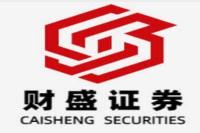Hong Kong Market Rollercoaster: Navigating the Volatility of the Hang Seng and Hang Seng Tech Indices (SEO Meta Description: Hang Seng Index, Hang Seng Tech Index, Hong Kong Stock Market, Market Volatility, Investment Strategy, October 2023 Market Dip)
A Wild Ride in October: Understanding the Recent Dip in Hong Kong's Market Giants
Wow, what a day! October 3rd, 2023, served up a real rollercoaster ride for investors watching the Hong Kong stock market. The Hang Seng Index, that stalwart of Asian finance, took a dramatic plunge, initially plummeting a stomach-churning 4.4% before recovering some ground to close down a still-significant 1%. Its tech-heavy cousin, the Hang Seng Tech Index, mirrored this volatility, diving a breathtaking 7.3% before settling at a slightly less alarming 1.8% decline. For seasoned investors, this might have been a familiar sight – the market's inherent unpredictability at play. But for those newer to the game, it was likely a baptism by fire! This dramatic swing highlights the crucial need for a nuanced understanding of the factors driving Hong Kong's market movements and the importance of developing a robust investment strategy capable of weathering such storms. This isn't just about numbers on a screen; it's about real-world implications for businesses, pensions, and individuals' financial futures. We'll delve deep into the potential causes of this volatility, providing actionable insights to help you navigate these turbulent waters more effectively. Forget dry economic reports – we're going to unpack this market swing with a human touch, drawing upon both expert analysis and real-world experience to paint a clearer picture of what happened and what it might mean for you. We’ll also examine long-term trends, dissect the impact of global events, and explore strategies to not only survive but even thrive amidst market fluctuations. This isn't just another market report; it's your guide to understanding and mastering the complexities of Hong Kong's dynamic financial landscape. So, buckle up, because we're about to embark on a journey into the heart of this market drama!
Hang Seng Index and Hang Seng Tech Index: A Deep Dive
The Hang Seng Index (HSI) and the Hang Seng Tech Index (HSTI) represent the backbone of Hong Kong's stock market. The HSI, a benchmark index comprising 50 of the largest companies listed on the Hong Kong Stock Exchange (HKEX), acts as a barometer of the overall market health. It's a diverse mix, encompassing sectors like finance, property, energy, and consumer goods. The HSTI, on the other hand, focuses specifically on the technology sector, reflecting the growing importance of tech giants in the global economy. Think Alibaba, Tencent, and Meituan – these are the heavy hitters that significantly influence the HSTI's performance.
The October 3rd dip wasn't an isolated incident. It's crucial to understand the broader context. Global macroeconomic factors, geopolitical tensions, and even unexpected regulatory announcements can all trigger significant market fluctuations. For example, anxieties surrounding rising interest rates in the US, the ongoing war in Ukraine, and shifts in China's regulatory environment are just some of the factors that can ripple through global markets and impact the HSI and HSTI.
Understanding Market Volatility: A Multifaceted Challenge
Market volatility, by its very nature, is unpredictable. However, understanding the potential drivers can help investors mitigate risk and potentially capitalize on opportunities. Here's a breakdown of key factors that can influence the Hong Kong market:
-
Global Economic Conditions: A global recession or slowdown can significantly impact Hong Kong's export-oriented economy, leading to decreased corporate earnings and lower stock prices. Conversely, robust global growth can boost investor confidence and drive market uptrends.
-
Geopolitical Events: Geopolitical instability, particularly events in mainland China and the broader Asia-Pacific region, can create uncertainty and lead to market corrections. Think trade wars, political tensions, or unexpected policy shifts.
-
Regulatory Changes: Government regulations, both in Hong Kong and mainland China, can significantly impact listed companies. Changes in accounting standards, tax policies, or industry-specific regulations can cause market reactions, sometimes quite dramatically.
-
Interest Rate Changes: Changes in interest rates, particularly in the US, can influence capital flows into and out of Hong Kong. Higher interest rates can attract investors seeking higher returns, potentially boosting the market; conversely, lower rates can lead to capital outflows.
-
Company-Specific News: Negative news surrounding a major company listed on the HSI or HSTI can trigger a sell-off, impacting the overall market sentiment. This could range from accounting scandals to disappointing earnings reports.
Navigating the Volatility: Strategies for Success
So how do you navigate this volatility? Here are some strategies to consider:
-
Diversification: Don't put all your eggs in one basket! A diversified portfolio, spread across different asset classes and geographical regions, can help mitigate risk.
-
Long-Term Perspective: Avoid making rash decisions based on short-term market fluctuations. A long-term investment horizon allows you to ride out the inevitable ups and downs.
-
Risk Management: Understand your risk tolerance and invest accordingly. Consider using stop-loss orders to limit potential losses.
-
Stay Informed: Keep yourself updated on global and regional economic news, geopolitical events, and regulatory changes that could impact the Hong Kong market.
Table: Key Differences Between HSI and HSTI
| Feature | Hang Seng Index (HSI) | Hang Seng Tech Index (HSTI) |
|----------------|---------------------------------------|---------------------------------------|
| Focus | Broad market representation | Technology sector |
| Constituents | 50 largest companies on HKEX | Leading technology companies on HKEX |
| Volatility | Generally less volatile than HSTI | Typically more volatile than HSI |
| Sector Exposure | Diverse across multiple sectors | Concentrated in technology |
Frequently Asked Questions (FAQs)
-
Q: How often does the Hang Seng Index fluctuate? A: The HSI fluctuates daily, influenced by a multitude of factors, both global and local. While some days see minor changes, others can witness significant swings, as seen on October 3rd, 2023.
-
Q: Is investing in the Hong Kong market risky? A: Like any market, investing in Hong Kong carries inherent risks. However, through diversification, risk management, and thorough research, these risks can be mitigated.
-
Q: What are the best ways to track the HSI and HSTI? A: Many financial websites and platforms provide real-time data and charts for both indices. Reliable sources include major financial news outlets and brokerage platforms.
-
Q: How do global events impact the Hong Kong market? A: Global events, particularly those impacting China or the US, can significantly influence the Hong Kong market due to its close economic ties with both countries. Trade wars, geopolitical tensions, and changes in monetary policy can all have ripple effects.
-
Q: Should I invest in the HSI or HSTI? A: The choice depends on your risk tolerance and investment goals. The HSTI offers higher growth potential but also higher volatility, while the HSI is generally considered less risky but may offer lower returns.
-
Q: What should I do if the market drops significantly? A: Avoid panic selling. Review your investment strategy, assess your risk tolerance, and consider seeking professional financial advice if needed. Remember, market dips happen, and a long-term perspective is key.
Conclusion:
The October 3rd market dip in Hong Kong served as a stark reminder of the inherent volatility in any market. However, by understanding the underlying factors driving these fluctuations and employing sound investment strategies, investors can navigate these challenges more effectively. Remember, diligent research, diversification, and a long-term perspective are your best allies in navigating the exciting, yet sometimes turbulent, world of Hong Kong’s financial markets. Stay informed, stay adaptable, and remember that even the most experienced investors embrace a healthy dose of caution and planning. The market is a marathon, not a sprint!



